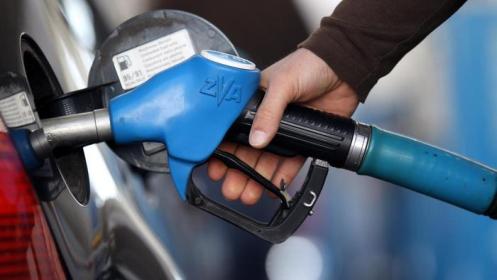LAGOS JUNE 23RD (NEWSRANGERS)-Salary earners have devised new means of minimising expenses as a result of the hike in fuel price, which has led to increase in the cost of transportation and other services in the country.
Some residing in communities far from their places of work now sleep at the office while those with vehicles have turned them into cabs to raise money to buy fuel.
Daily Trust also leant that most low and mid income earners now make use of public transportation during the weekdays while attending only essential events during weekends.
In Lagos, the hike in fuel has led to astronomical increase in the cost of transportation in the state. Some junior staff who spoke with Daily Trust said they now sleep at their offices or with friends who live around.
“I now sleep at the office as you know most workers in Lagos live in Ogun State or the border towns. Transporting myself daily from Ofada, Ogun State to my place of work on the Island is too expensive,” noted Mr Ajala Ajibade, who works as a security guard in a manufacturing company in Ikeja.
In oil-rich Rivers State, workers said that they prioritise their needs as a way of coping with the high cost of fuel.
A resident of Oyigbo, Emma Chukwu said he uses public transport to go to work while he uses his car to take his family to church on Sundays.
“The high cost of fuel has made me limit my movements. I use public transport to go to work while I use my car on Sundays to take my family to church. I don’t want to expose my family to the dangers of climbing bikes or Keke. The moment I come back from church, I park the car,” he said.
Another respondent in Oyigbo, Peter Ejike said he has abandoned his car since the hike in fuel was announced.
The provision of buses by the Anambra State government has minimised the impact of the fuel hike on civil servants in the state.
Over the years, the state government had donated buses to convey those in the public establishment to offices.
Buses are stationed at strategic places every morning and evening to transport state workers. Most civil servants don’t use their private cars on weekdays.
A staff of the Ministry of Agriculture, Mr Peter Nwanosike, who was not using the government provided buses in the past, said the cost of fuelling his car is becoming burdensome.
“I used to buy fuel worth N5,000 per week and now it is over N15,000. I only use my car for going to work and church. I hardly move around with my car,” he said. A civil servant in the Ministry of Education, Mrs Chinwe Chuka, said that there is no way she will continue using a car when she cannot fuel it.
Meanwhile, with the sit at home, workers have only four days to work while very few civil servants go to work on Thursdays and Fridays, which are often used for burial ceremonies.
In Kano, most low and mid income earners are looking at the option of substituting their cars with motorcycles or battery powered bicycles.
Filling stations are also crying out over drastic reduction in patronage. The few patronising these filling stations are also buying less quantity.
A public worker, Hassan Idris, said he now uses his vehicle to convey passengers from 6am to 10am daily before going to work.
Daily Trust further observed that most parking spaces in ministries are now empty.
In a visit to a state ministry at Audu Bako Secretariat, a staff told our reporter that most of the vehicles belonging to junior staff of the ministry have been grounded.
DailyTrust











